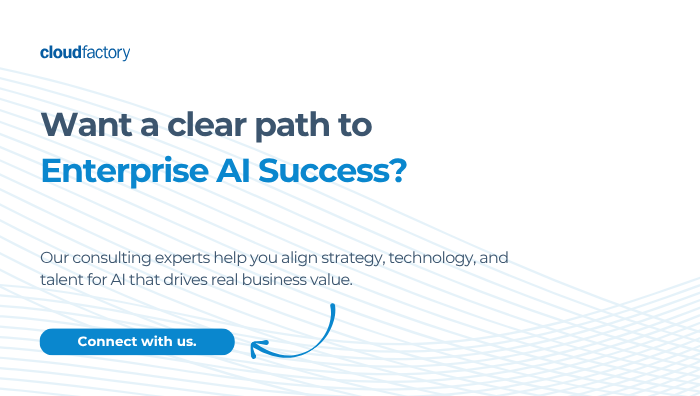Measuring the performance of AI models is crucial for enterprise leaders looking to harness AI's full potential. With a focus on terms like "accuracy score," "AI accuracy score," and "model accuracy score," understanding these metrics is key to ensuring your AI solutions deliver value. This listicle provides insights into the significance of AI accuracy scores and related metrics, offering enterprise leaders the knowledge to make informed decisions.
1. Understanding AI Accuracy Scores
Accuracy scores are a straightforward metric determining how often a model's predictions are correct. For enterprises, understanding AI accuracy scores is fundamental as they directly relate to the model's reliability. However, reliance solely on accuracy can be misleading, especially in imbalanced datasets. It's crucial to evaluate accuracy alongside other metrics to ensure comprehensive AI model evaluation.

2. The Limits of Accuracy vs Performance
While accuracy is a vital performance indicator, it doesn't tell the whole story. In scenarios with imbalanced data, a high accuracy score might hide poor performance on minority classes. Enterprise leaders should focus on a balanced view of accuracy vs performance, considering metrics like precision and recall for a fuller picture.
3. Model Accuracy Score in AI Model Evaluation
Model accuracy scores provide a snapshot of a model's success rate, but AI model evaluation requires a deeper dive. It's essential to understand the context of these scores and the conditions under which the model operates. Tools like the AI Robustness (AIR) Tool offer insights into model stability under various conditions, highlighting potential biases and accuracy limitations.
4. Precision vs Recall: Finding the Balance
Precision and recall are critical metrics that offer more granularity than accuracy alone. Precision measures the accuracy of positive predictions, while recall assesses how well the model identifies positive cases. Enterprises must balance model precision vs recall to optimize AI models for different business needs, ensuring both high precision and recall where necessary.
5. AI Error Rates and Their Implications
Understanding AI error rates is crucial for strategic planning. Error rates provide insights into where a model might fail, allowing enterprises to address these issues proactively. By evaluating AI error rates, organizations can improve model performance and reduce the risk of costly errors.
6. Importance of Data Quality and Accuracy
Data quality directly impacts model accuracy. High-quality, well-labeled data ensures more reliable accuracy scores, ultimately leading to better decision-making. Enterprises must invest in robust data governance frameworks to maintain data quality and accuracy, aligning with compliance standards and optimizing AI investments.

7. Measuring AI Accuracy: A Holistic Approach
To measure AI accuracy effectively, enterprises should employ a range of metrics beyond simple accuracy scores. A holistic approach involves using metrics like F1-score, area under the curve (AUC), and balanced accuracy to get a comprehensive view of model performance.
8. Accuracy Limitations in AI and How to Overcome Them
AI models often face accuracy limitations due to biased data or unforeseen scenarios. Enterprises can overcome these by implementing human-in-the-loop oversight and leveraging tools for edge case handling, ensuring AI models remain robust and reliable across various conditions.
9. Case Study Spotlight: CloudFactory and LineVision
CloudFactory's partnership with LineVision demonstrates the importance of precision and speed in AI model performance. By achieving one-centimeter precision in annotating drone LiDAR data, CloudFactory cut turnaround time by 66%, illustrating that accuracy scores are just part of the equation. The true impact lies in precision, speed, and confidence in data. Read the full story.
Conclusion
Accuracy scores are a vital component of AI model evaluation, but they are not the sole indicator of success. By considering additional metrics and understanding the broader context of AI accuracy, enterprise leaders can make strategic decisions that enhance AI adoption, reduce operational costs, and improve decision-making speed. To explore more about how CloudFactory's AI Data Platform can empower your organization with robust AI oversight and compliance, visit CloudFactory’s AI Data Platform.
.png?width=1563&height=1563&name=Untitled%20design%20(38).png)




.png?width=1563&height=1563&name=Untitled%20design%20(30).png)



.png?width=1563&height=1563&name=Untitled%20design%20(33).png)


.png?width=1563&height=1563&name=Untitled%20design%20(34).png)














